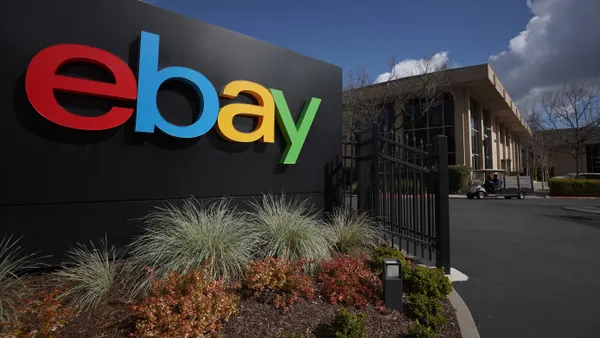Dive Brief:
-
Retailers stand to lose about $130 billion in revenue on fraudulent card-not-present transactions between now and 2023 as they fail to keep up with digital fraud detection and prevention measures, according to a new forecast from Juniper Research.
-
The report, "Online Payment Fraud: Emerging Threats, Segment Analysis & Market Forecasts 2018-2023," observed that many e-commerce merchants still assess fraud risk at the point of transaction, rather than investing in fraud detection and prevention solutions that monitor shopping sessions and behavior, or that validate user identity before a transaction.
-
By 2023, companies supporting retail transactions are expected to spend about $9.6 billion yearly on fraud detection and prevention capabilities, Juniper said, but much of that investment likely will be driven by financial institutions and payment service providers, not merchants.
Dive Insight:
Card-not-present (CNP) online payment fraud is a frequent research topic of Juniper's, and a year and a half ago the consultancy forecasted that retailers would lose $71 billion to CNP fraud by 2022. Now, Juniper is predicting a much higher loss total for just one year later. The problem is growing fast.
The retail sector has been well aware for years now that CNP transactions are ripe fruit for fraud schemes. Steadily increasing CNP transactions are essential in a world moving more to e-commerce and mobile commerce. That accounts for part of the rise in CNP fraud activity, but it's also a result of in-store transaction protections like EMV that are forcing criminals to look elsewhere to commit fraud.
Meanwhile, fraud detection and prevention technologies have been evolving to meet the growing threat head-on. For example, many fraud monitoring solutions now rely on artificial intelligence and machine learning technology for better, more accurate fraud detection before fraudulent transactions are completed. Identity authentication options also have expanded to include more biometric solutions. In addition, standards such as 3-D Secure, which have been in development for a while, have started to evolve more quickly and gain wider adoption.
As Juniper pointed out, however, financial institutions and payments firms are the ones leading the way in investing in fraud detection and prevention technologies. Mastercard, for example, announced a new suite of security services late last year that include digital commerce protection measures such as imminent support of 3-D Secure and EMVco's Secure Remote Commerce framework.
That in and of itself is not so much of a surprise, but more retailers need to start investing more in CNP detection and prevention, and talking more about what they are doing to prevent this type of fraud. Juniper's research suggested that they aren't spending on prevention solutions because they may see them as costly efforts without a quick and clear return on investment. That's not a good look for retailers as data breaches and other security incidents continue to plague the sector. It's time for them to realize their payoff will come in greater, long-term customer satisfaction and loyalty — the best kind of ROI.










